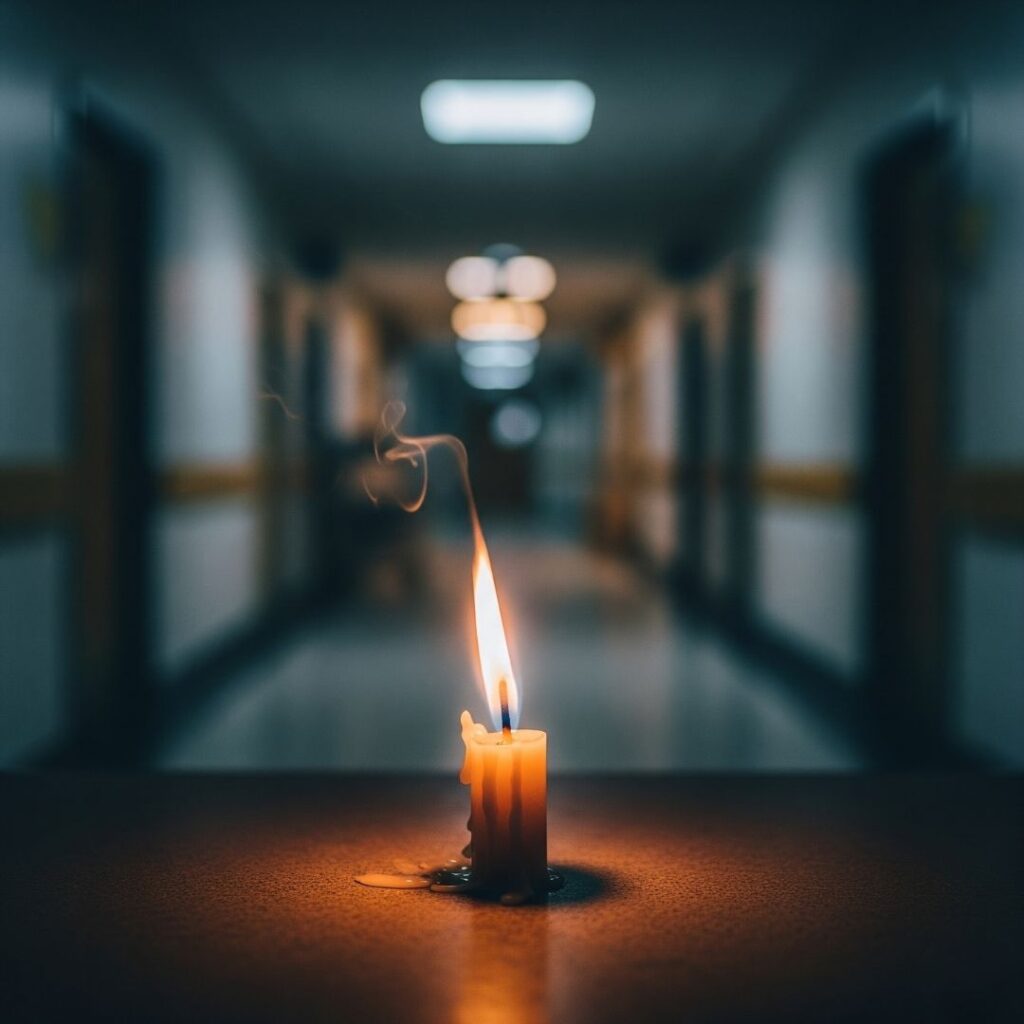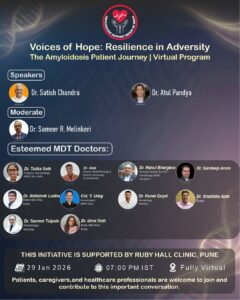How Many More? A Call for National Action on Amyloidosis
Table of Contents

Introduction: A Tragedy That Demands Attention
Late Shri Madhusudan Singh’s death, the fourth within the ASGI community, from Amyloidosis at AIIMS Hospital is not just personal loss—it is a national public health failure. When families grieve in silence, the healthcare system largely stays unresponsive. This piece cuts to the core of the realities of Amyloidosis in India, the systemic shortcomings, and what we need to demand as a society. It’s time to ask: How many more lives have to be lost before we take action?
Understanding Amyloidosis: The Silent Killer
Amyloidosis is an unusual illness resulting from the abnormal accumulation of a protein known as amyloid in tissues and organs, interfering with normal function. The heart, kidneys, liver, nervous system, and digestive system may be affected.
Types of Amyloidosis
- AL (Primary) Amyloidosis: Results from abnormal plasma cells that produce light chains.
- AA (Secondary) Amyloidosis: Associated with long-standing inflammation.
- Hereditary Amyloidosis: Genetic inheritance.
- Wild-Type ATTR: Found in older individuals.
Although it is categorized as rare, its impact is far-reaching—and increasing.
Present Reality in India: A System That Fails the Rare
In spite of having world-class centers, patients of Amyloidosis in India have a grim reality to face:
- No Special Clinics: There are no public or private health centers with a special Amyloidosis clinic.
- Misdiagnosis: The patients are misdiagnosed, resulting in potentially life-threatening delays in treatment.
- Absence of Trained Specialists: Not many physicians have training to detect or treat this unusual condition.
- No Support from Finances: The cost of treatment is high and out of reach for most families.
The DGHS Letter: A Glimmer of Hope
DGHS has officially recognized Amyloidosis as a rare disease, in a move that has given hope to survivors and families. But without an official SOP, this acknowledgment is worth very little in reality.
The Waiting Game
Survivors are stuck in limbo. Families wait helplessly. Diagnosis channels are still not clear, and many are dying without treatment. The gap between recognition and action is still claiming lives.
What We’ve Learned from Families
Conversations with grieving families and surviving patients paint a painful picture:
- No SOPs = No Clarity: Doctors remain unaware or unsure about treatment guidelines.
- Long Diagnostic Delays: Patients often consult 5–7 doctors before receiving a diagnosis.
- High Cost of Care: Medications and biopsies cost lakhs, with no support from public health schemes.
- Emotional Trauma: The emotional effect on families is catastrophic, usually resulting in depression and financial devastation.
A Call to Action: What Needs to Change
1. Set Up Amyloidosis Clinics in Major Hospitals
- Each state-level hospital should establish a rare disease clinic with dedicated Amyloidosis facilities.
2. Accelerate SOP Development
- The government needs to finalize and use standard diagnostic and treatment procedures immediately.
3. Monetary Support Under the Rare Disease Policy
- Place Amyloidosis patients under the National Policy for Rare Diseases (NPRD) for complete financial coverage.
4. Training and Awareness Programs
- Organize national awareness programs and medical training to detect symptoms early.
5. Data Gathering and Research
- Set up a national Amyloidosis registry to collect data to aid in future research.
What You Can Do
Your voice can make a difference. Here’s how you can contribute:
- Share This Blog: Promote awareness on social media.
- Tag Authorities: Tag Ministry of Health & Family Welfare, NITI Aayog, and AIIMS authorities.
- Sign Petitions: Sign online petitions calling for immediate policy change.
- Donate to Support Groups: Donate to groups such as RDSSDF and ASGI.
- Educate Yourself: Know the symptoms. Share the knowledge.
Remembering Madhusudan Singh
We remember Late Shri Madhusudan Singh not just as a patient, but as a brave fighter who battled an invisible enemy. Our deepest condolences go to his son, Mr. Amarjeet Singh Ji, and the family. Their pain fuels our purpose.
Every life lost to Amyloidosis is a failure of our collective responsibility. Let’s honor these lives with action.
Conclusion: Recognition. Response. Respect.
Amyloidosis might be rare, but invisible it is not. The Indian health system needs to wake up and meet the crisis head-on. It’s time for the Ministry of Health to implement a people-first policy—where every life matters, every disease matters.

